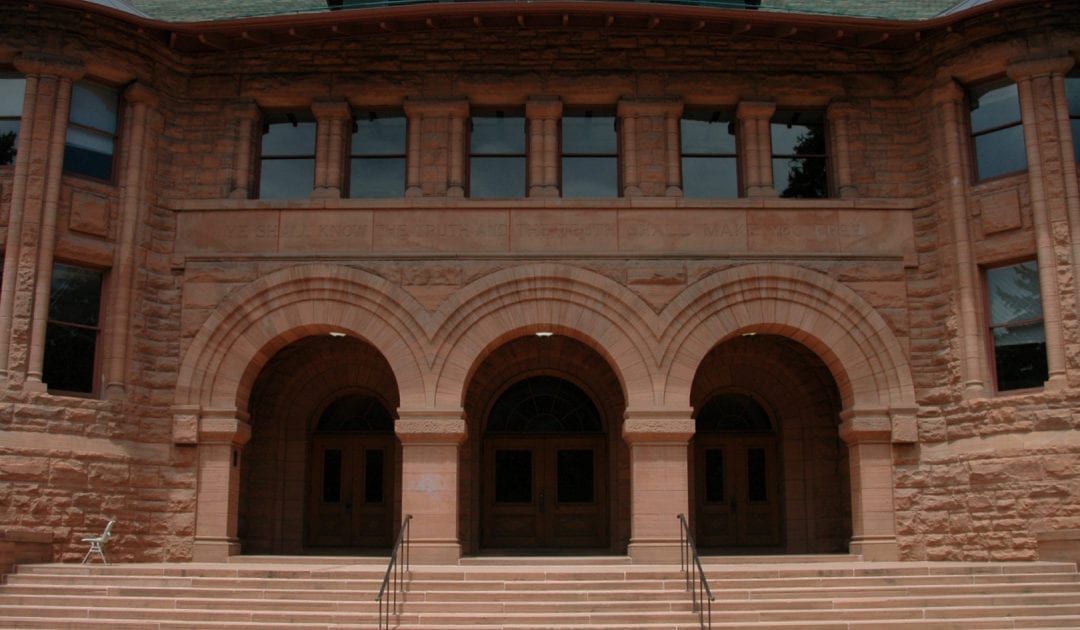
Colorado College is the first higher education institution in the state to walk back in-person learning as coronavirus quarantines disrupted the campus in the fall semester’s first few weeks.
COVID-19 IN COLORADO
The latest from the coronavirus outbreak in Colorado:
- MAP: Known cases in Colorado.
>> FULL COVERAGE
The private liberal arts school in Colorado Springs announced the decision in a letter to the campus community on Tuesday.
Colorado College runs on a block system where students take one class at a time for about a month. The school is in its first block; after starting classes in person for first-year students only, all will now be held remotely.
Save for a limited number of classes, the rest of the fall semester blocks — there are three more — will be online as well, the college said.
“This is not how you — or we — envisioned our students starting their campus life, or this academic year,” wrote acting co-presidents Mike Edmonds and Robert G. Moore.
Hundreds of students currently living on campus are expected to find housing elsewhere by Sept. 20, excluding the few who will be taking hybrid or in-person classes during other first-semester blocks.
The college will refund Block 1 room charges for all students who started the term in the college’s three largest dorms — Loomis, Mathias and South halls — even if they were moved elsewhere for quarantine or isolation. International students and those who are in “dire need,” according to the letter, will also have campus housing available.
Two dorms — South and Mathias halls — remain under quarantine until noon on Sept. 12 after several students tested positive for COVID-19. Students who live within a few hours’ drive and can be taken home by a family member or other adult are allowed to leave before the quarantine ends.
A third quarantine, on the 155 students of Loomis Hall, was lifted on Sunday after two weeks.
MORE: What it’s like for the 100-plus Colorado College students stuck in their dorm after a peer tested positive for coronavirus
OUR UNDERWRITERS SUPPORT JOURNALISM. BECOME ONE.
The letter to the campus community said El Paso County Public Health told the school to expect rolling mass quarantines should in-person learning continue.
“The residential liberal arts experience is a special element of life at CC, but we can’t offer a quality residential experience to our students under these circumstances,” Edmonds and Moore wrote in their letter.
The college says it is working to establish its own COVID-19 testing lab within the next month in hopes of expediting test turnaround times to respond faster to cases before they spread. So far eleven students living on campus have tested positive for the virus, plus one staff member who was working on campus.
The college has been contracting with UCHealth and Optum for help with testing, according to Colorado College spokeswoman Leslie Weddell, and has performed around 250 tests per week. Weddell said the health center on campus, which focuses on testing symptomatic students, has been “well within its capacity,” testing three to five students a day on average over the past week.
Colorado College is not the first higher education institution in the U.S. to change its plans because of COVID-19 outbreaks.
University of North Carolina, State University of New York at Oneonta and Temple University, among others, have temporarily or permanently abandoned their in-person learning ambitions for the fall as a significant portion of student cases come from transmission at parties. Other schools, such as Baylor University, are using quarantine measures similar to Colorado College’s but are continuing in-person operations.
The college says on Thursday it will announce a decision on which students may be allowed on campus for the remainder of the semester. In October it will announce its plans for the second semester.
The University of Colorado Boulder and Colorado State University, the state’s largest higher education institutions, are still maintaining their hybrid learning models.
Lori Lynn, co-chair of CSU’s Pandemic Preparedness Team, said that the university is keeping an eye on how peer institutions are handling COVID-19 outbreaks,
“I feel like we have a pretty solid plan,” she said. The university is contracting with Biodesix and can run over a thousand tests a week, according to Lynn, with an average turnaround time of 24-48 hours, which helps increase the efficacy of contact tracing.
From June 2 to August 31, 100 tests from students, staff and faculty came back positive.
While CSU tested around 7,500 people in the first weeks of the fall semester, Lynn says the school is taking “more of a targeted approach at this point” by focusing testing efforts. That includes testing specific residence hall floors — about 7,000 students currently live in university housing — as well as testing faculty and staff that have in-person interactions more often.
The campus hopes to get limited on-campus testing up and running within the next week or so.
At CU Boulder, when students started moving into dorms on Aug. 17, many already arrived with a negative COVID-19 test result. Of the 2,195 students that needed tests when they arrived, eight came back positive, according to CU’s COVID-19 dashboard. Some students chose to quarantine back at home while others isolated on campus.
Add in other positive results during move-in and the weeks since, and CU has seen 31 positive cases for the fall semester so far, though that figure only accounts for tests performed through the campus Medical Services.
Our articles are free to read, but not free to report
Support local journalism around the state.
Become a member of The Colorado Sun today!
$5/month
$20/month
$100/month
One-time Contribution
The latest from The Sun
This content was originally published here.

